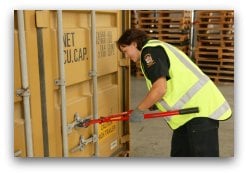
Can You Reduce Value of The Goods and Minimise Import Taxes?
3-minute read
If you import goods into New Zealand you must declare the Customs value of the goods on the import entry or clearance document, but questions are always asked – how is the value determined, and what is the process for appeal?
The Customs value of imported goods plays a large part in determining the amount of tariff duty and GST imposed on the goods. All goods imported into New Zealand are (with rare exceptions ) subject to GST and, where applicable, tariff duty.
It doesn’t matter if the goods are purchased, supplied free of charge, personal possessions, or temporarily imported into New Zealand: a Customs value must be specified to enable the correct amount of tariff duty and GST to be calculated.
The transaction value method is the primary method for valuing imported goods and is calculated by taking the price paid or payable for the imported goods and adding certain additional costs not included in the price, such as commission and brokerage fees paid in respect of the purchase of the goods, any packing costs or charges associated with the goods, and any royalties and licence fees that are paid as a condition of the sale of the goods in New Zealand.
In some instances, certain charges can be deducted from this value provided they are able to be separately identified. For example, the cost of any transportation, insurance, loading and handling charges from the overseas port of export, and any New Zealand Customs duties or New Zealand taxes outlined on the commercial invoice.
However, the transaction value method can only be used where certain conditions are met e.g. the imported goods are subject to a sale between a buyer and a seller , and where the price paid or payable for the goods is not influenced by any relationship that exists between the buyer and seller of the goods.
When the transaction value method does not apply, other methods will be required to be used to calculate the Customs value which must be applied in sequential order as outlined below:
- the transaction value of identical goods recently sold for export to New Zealand
- the transaction value of similar goods recently sold for export to New Zealand
- the deductive value method, which is based on the resale price of the imported goods in New Zealand, less applicable charges and expenses incurred in respect of the sale of the goods in New Zealand
- Computed value method, which is based on the cost to manufacture the imported goods plus an amount for profit
- Residual basis of valuation method, where the value is determined using a flexible interpretation of the any of the preceding methods
While Customs can provide assistance to importers when determining the correct method of Customs valuation to use, as an importer, it’s your responsibility to determine the Customs value. Where Customs isn’t satisfied with your assessment, they can amend it.
 If you are dissatisfied with Customs’ decision on the amended assessment, you can lodge an appeal with the Customs Appeal Authority within 20 working days of the date of the notice of the decision.
If you are dissatisfied with Customs’ decision on the amended assessment, you can lodge an appeal with the Customs Appeal Authority within 20 working days of the date of the notice of the decision.
Source: NZ Customs
We’d love to answer any of your questions! Contact us now
P.S. Do you know of other people that will find this article useful? Please share it on social media. Thank you!
